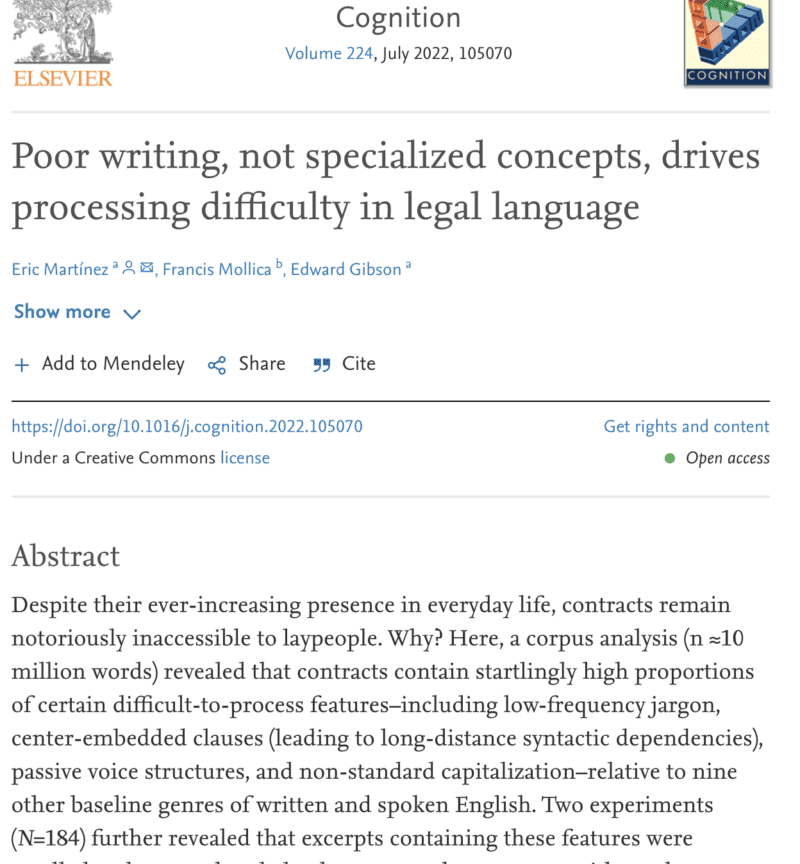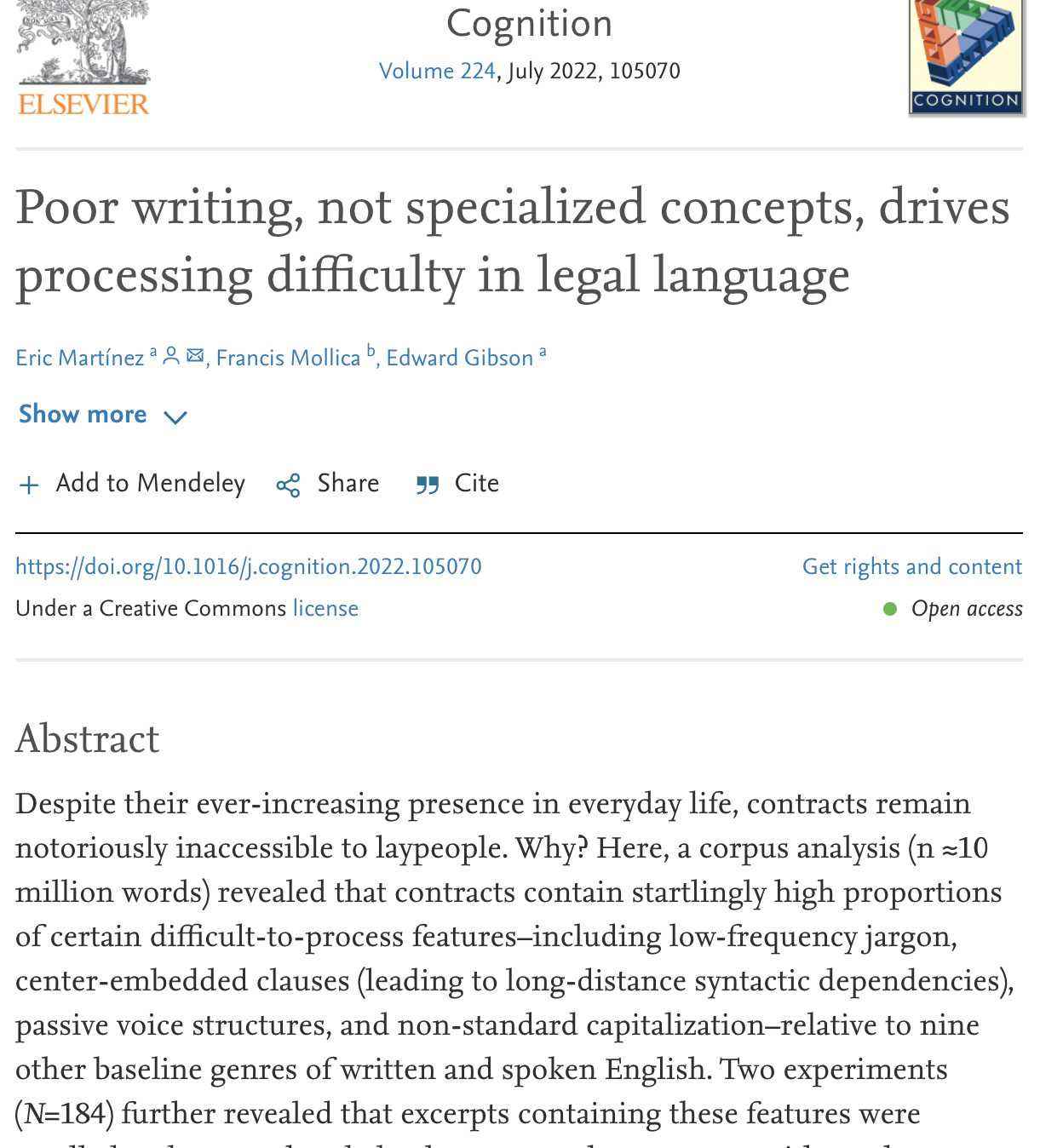
A new article in Cognition lays out an analysis of millions of contracts (compared to other written pieces of journalism or articles) and finds that these contracts are written in ways that are complex, overwhelming, and difficult to understand.
The contracts have been written in ways that overcomplicate the communication:
- Passages with all caps, that actually make it harder to read the text (even if lawyers are using the capitalization to emphasize the points)
- Using infrequent, jargony words. Rather than phrasing the contract clauses in normal language, there are many legal words — aforesaid, herein, etc — that make it hard to process what’s happening in the contract.
- Clauses stuffed into the same sentence, that make for convoluted logic. It’s hard to figure out what the conditionalities or rules are, when there are many clauses layerd into each other.
- Passive voice that makes it hard to follow what’s happening.
The researchers find that attorneys are using these non-usable communication strategies in contracts. Contracts don’t have to be written this way. Lawyers can reverse these trends, to make more straightforward, engaging, and usable contracts.



